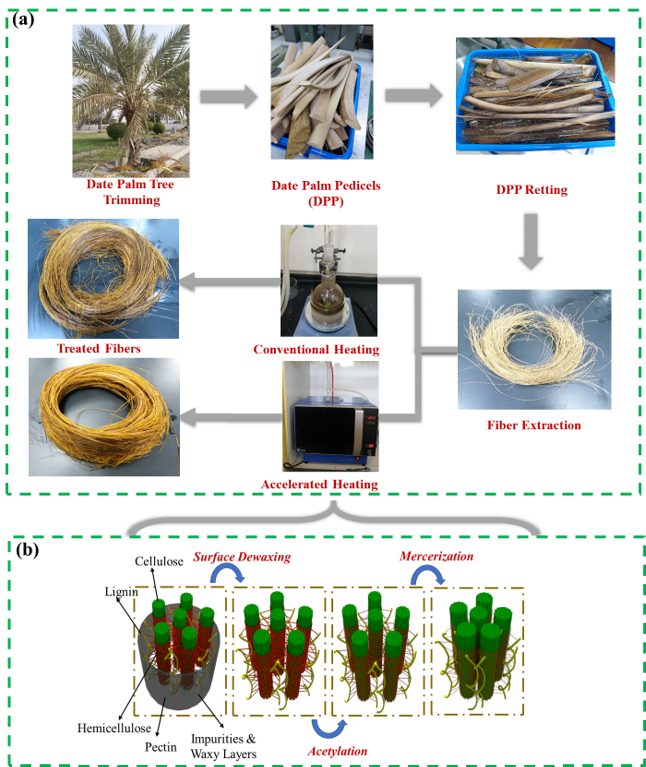
In collaboration with a team of researchers from Sultan Qaboos University in the Sultanate of Oman, Dr. Mahmoud Nassar from the College of Applied Professions at Palestine Polytechnic University published a scientific study examining a new chemical technique for extracting natural fibers and enhancing their performance. The study was titled: "A New Multistep Chemical Treatment Method for High Performance Natural Fibers Extraction." The study was published in the Journal of Natural Fibers, which has a Q1 quality level and an impact factor of "IF = 3.507" in research on processing natural raw materials, particularly fibers.
The study describes a novel chemical method for modifying natural fibers derived from date palm pedicels and agro-residues in order to extract high-performance fibers. The multistep method is unique in terms of time control and sequencing that effectively integrates processing steps, i.e., dewaxing, acetylation, and alkalization, through optimization of input parameters based on the design of the experiment. The objective is to control the reaction of chemical agents with hydroxyl groups and thereby adjust the contents of cellulose, hemicellulose, and lignin in the fiber. Dewaxing purifies the fiber’s wall cell from wax and impurities and completely removes pectin.
Acetylation removes a small amount of amorphous cellulose from an acetic acid solution mobilized by sodium chloride, causing the fiber's properties to change from hydrophilic to hydrophobic. Alkalization with NaOH facilitated further removal of lignin and amorphous hemicellulose, which enhanced the crystalline cellulose backbone. The successful use of chemical agents increased the fiber surface roughness and exposed the OH hydroxyl group, which facilitates its application as a reinforcing component to polymers. This is a significant contribution to the synthesis of high-performance bio-composites, which will ultimately help in exploring new opportunities to develop value-added products using natural fibers sourced from date palm waste.
The study has been duly registered with the World Intellectual Property Organization (WIPO) and can be accessed through the following link:
https://patentscope.wipo.int/search/en/detail.jsf?docId=WO2020139088
The published paper can be found at the following link:
https://www.tandfonline.com/doi/full/10.1080/15440478.2022.2150922?scroll=top&needAccess=true
Public Relations and Media Department











